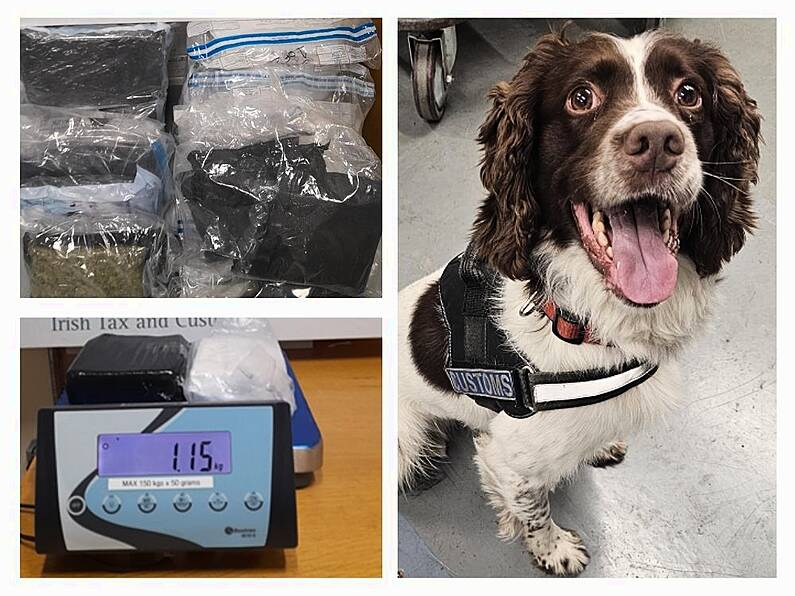Gardaí have issued a warning to students about accommodation fraud.
Students are being warned to watch out for accommodation fraud in the build up to the new academic year.
Gardaí say one third of all scams of this nature occur during August to September each year.
Signs of a potential rental scam include a landlord who claims to be out of the country, so can't meet the renter in person and the request for a deposit payment before a viewing.
Rental Fraud in Ireland
• Approximately one third of all accommodation fraud reports occur during August - September each year
• The return to college timeframe (August - October) shows an annual spike in accommodation fraud
• 34% of victims of accommodation fraud are under 25, and 66% of victims are under 33 years
• 54% of victims of accommodation fraud are male and 46% are female
• 30% of victims are Irish
Gardaí are advising people to be wary of rental scams, particularly at this time of year when students are returning to college.
Rental fraud occurs when a victim pays money to rent accommodation (typically in the form of a deposit) and subsequently discovers that the transaction was fraudulent.
Examples of rental fraud include:
• The fraudster claims to be out of the country and cannot show the renter the property unless they pay a deposit. The victim pays the deposit and is at the loss of the deposit.
• The fraudster is living in the property and shows a number of people the property, gets a deposit from several people and then disappears with the money.
• The transaction appears normal until the renter finds that the property doesn’t exist, is already occupied or the keys do not work and the landlord has disappeared.
Advice: There are a number of red flags/warning signs to look out for when searching for accommodation
• If the rent seems too good to be true then it probably is – there is no such thing as cheap accommodation especially in urban areas.
• It's only advertised through social media or the person letting the location will only communicate via Messenger or WhatsApp. You should push for direct answers and if responses are vague disengage immediately.
• Where your knowledge of it came from an unsolicited contact / social media feed / pop-up advert or where the contact appears to be based in other jurisdictions.
• There is a sense of urgency like "a one-time offer”.
• The listing contains grammar or spelling mistakes and/or there are very limited details or pictures of the property.
• The landlord is unable to meet up to show you the property in person.
• When communication is only through text / WhatsApp or other social media platforms.
• When the property is offered with no questions asked and payment demanded immediately before signing the lease.
• When you are asked to pay cash, cryptocurrency or money via a non-bank transfer (such as wire transfer).
• Where the bank account you are asked to send the money to is in a different country.
Do your own research on the advertisement and the property
• Only use recognised letting agencies or deal with people who are bona fide and trusted ie, the college or student unions.
• Be wary of cloned websites: ensure the site is real – check the URL, look for the trust seals; check the privacy policy, refunds policy section, contact sections, even for spelling errors; check the website’s policy on refunds.
• Know your consumer rights. They are protected if a legitimate site is used.
• If you have decided to take up the offer only use trusted money transfer systems - An Garda Síochána would recommend using a credit card.
• Never agree to rent a property without first having the opportunity to view it.
• Ensure that the keys work and you have proper contact details for the landlord/agent.
• Ideally the property would be registered with the Residential Tenancies Board (RTB). This can be checked on their website.
• Fully research the area to find out what the average asking prices are and compare to the advertisement/offer.
• Ideally, meet with the landlord for a tour of the accommodation. If this is not possible for some reason (this reason should be on your part, the landlord has no excuse), ask as many verifiable questions as possible such as: What bus routes are nearby? What local facilities are there (supermarkets etc)?
• Ask for the exact address and verify the existence of the property. Check Google maps to see that the property is the same as that advertised. Reverse image search any posted images to see if they appear elsewhere on the internet.
• The RTB rent index provides students with important benchmark information and is an authoritative guide as to the actual rents being charged by landlords adjacent to all universities and other third level colleges.
Keep up to date with all the latest on our website Beat102103.com.






